The Irish soccer team's 1982 tour of South America during the Falklands War was a farcical episode in Irish sport: 4 games, 3 defeats, 2 cancellations. But how did half the squad end up being detained by armed police? And how did a carpet salesman from Limerick end up sitting in the cigarette smoke and samba of Brazil’s 1982 World Cup Squad?
Programme maker David Coughlan tells the story behind Cigarettes and Samba, this week's fascinating Documentary On One on RTÉ Radio 1...
Kevin O'Callaghan went into the attic at his home in Kent. Down came two boxes stuffed with football shirts and Ireland caps.
There were medals, too. A Division Two league winner’s medal from his time with Millwall and a UEFA Cup winner’s medal from his spell at Ipswich Town.
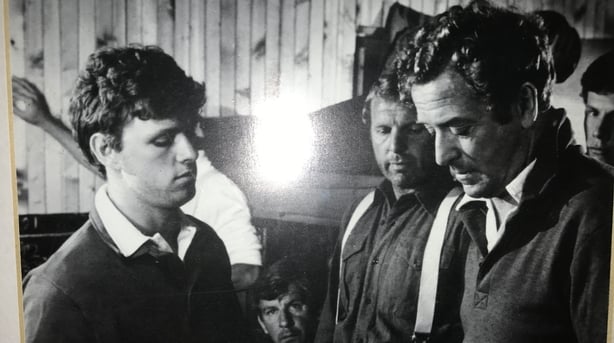
He also found his tracksuit from the movie Escape To Victory. In 1981, Kevin had a role in the film alongside Sylvester Stallone, Michael Caine, Pelé and a host of other footballers.
A year after filming with Hollywood A-listers, he was involved a story that was stranger than fiction: Ireland’s 1982 tour to South America.
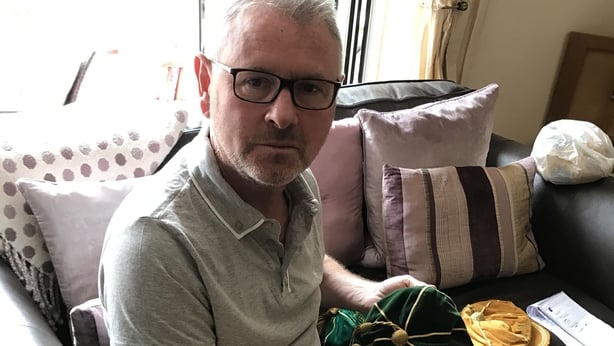
Cigarettes and Samba tells the story of that tour — one of the most farcical episodes in Irish football history.
After narrowly failing to qualify for the 1982 World Cup, Eoin Hand’s squad were given a consolation prize of a tour of a lifetime to play reigning world champions Argentina and the great Brazil side of Zico, Socrates and Falcao.
The only problem was the outbreak of the Falklands War.
Piecing together the story of football and politics took me from Ardee in County Louth to Kent near London and Whitby near Chester. There were also trips to Limerick, to Kerry and another to the RTÉ studios during the week of the Late Late Toy Show.
The locations couldn’t have been more different from those on the 1982 tour. During the recordings, I listened to memories of missing submarines, missing players and missing games. There were guns, goals, cigarettes and samba.
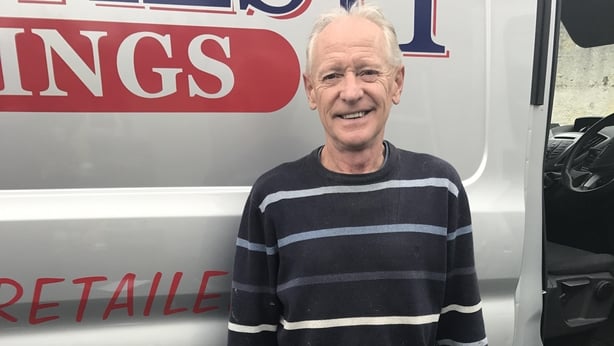
Nearly 40 years after the 1982 tour, I was in Dooradoyle one rainy afternoon watching Johnny Walsh fit carpets. The setting was Storan Fluid Systems, owned by Brendan Storan, Walsh’s old Limerick teammate and scorer of the winning goal in the 1982 FAI Cup final.
Just a few days after that FAI Cup final win, Johnny’s life would change forever with his call-up for his first international cap.
Another trip to Limerick was made to find Gerry Collins. The former Minister for Foreign Affairs was preparing to celebrate his 80th birthday and in between fishing trips, he agreed to discuss the Falklands one morning at his home.
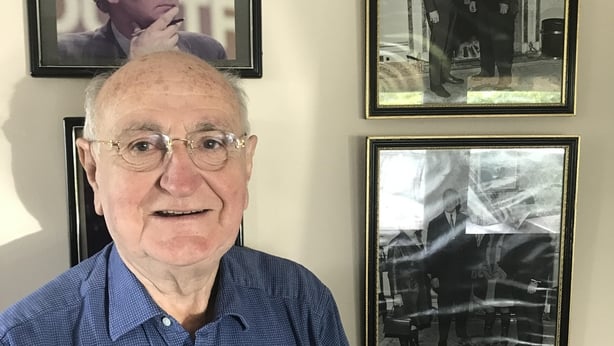
Pictures of Collins with Nelson Mandela, Brian Keenan, Ronald Reagan and Eamon De Valera hung on the walls of his office, his own memorabilia from a career representing Ireland.
Over coffee, he recalled his own difficult relationship with British Prime Minister Margaret Thatcher, including during the Falklands crisis.
The complicated shared history between Britain and Ireland extends of course, to football.
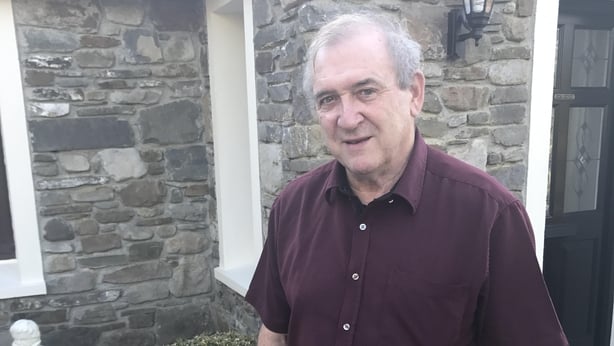
When I met Eoin Hand down in Moyvane, the name of Declan Rice was on every sports bulletin as the London-born player had decided to step away from the Ireland set-up to consider his international future.
As Ireland boss in the early 1980s, Eoin had received death threats for picking English-born players. Then on the 1982 tour, Eoin had the unenviable task of convincing British football clubs to release their Irish internationals to play in Argentina, during the Falklands War.
This at a time when British journalists were being arrested in Argentina.
Manchester-born Mike Walsh was one of those selected by Eoin Hand for the 1982 tour to South America. Mike was not long back in England after ten years in Spain when we met in Whitby, near Chester. His house was still being furnished, but even still he quickly found a blurry old photo of the Ireland team from the tour during their stay in Santiago, Chile.
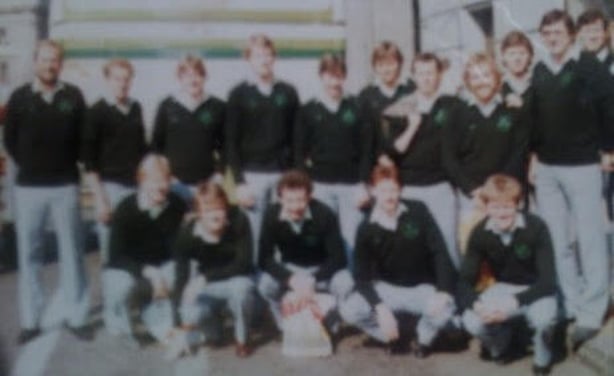
Nearly 40 years on from the adventure, his pride in playing for Ireland was very obvious.
Mick Fairclough’s Irish pride is on display in his home near Ardee in County Louth, with his caps from the tour, mounted on the wall.
After losing several years of his career to injury, his time in football was very different to that of the great Liam Brady, but for a few weeks in 1982 they had their own shared history in the green jersey.
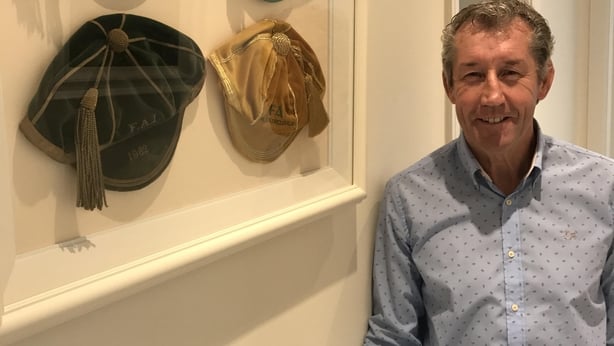
Just before Christmas, I stood in the lobby of RTÉ as kids with drums marched past, practicing for the Late Late Toy Show.
Liam Brady had just finished a session preparing for a Champions League broadcast when we met to discuss the 1982 tour.
In his playing days, he won two league titles in Italy with Juventus and an FA Cup with Arsenal and was awarded the PFA Player of the Year in England in 1979.
Ireland’s shambolic tour to South America was one of the least memorable times in his stellar career.
But just like the others the experience was unforgettable... Even if they didn’t quite escape to victory.
Listen back to more from Documentary On One here.

